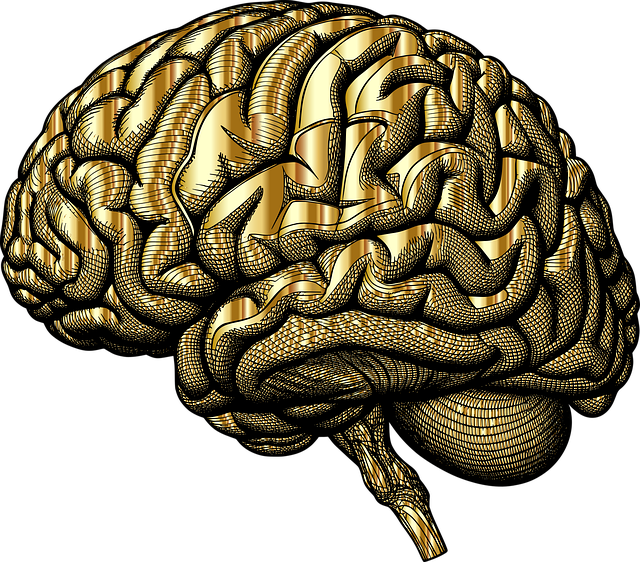Littleton Learning Disability Therapy focuses on holistic well-being by integrating stress management techniques tailored to individuals with learning disabilities. Their Mental Health Education Programs utilize mindfulness, cognitive behavioral therapy, and evidence-based practices to empower clients with coping skills for emotional expression, support-seeking, and effective navigation of stressful situations. This approach enhances academic performance, social interactions, and mental resilience, enabling professionals to manage risks while providing balanced care.
Stress management techniques are essential tools for individuals with learning disabilities, as stress can significantly impact their ability to learn and retain information. This article explores effective strategies to combat stress, focusing on the role of Littleton Learning Disability Therapy in teaching students valuable coping mechanisms. We’ll delve into understanding stress triggers, practical relief techniques, and integrating stress management into daily routines, providing a holistic approach to enhancing academic performance and overall well-being.
- Understanding Stress and its Impact on Learning Disabilities
- The Role of Littleton Learning Disability Therapy in Stress Management
- Practical Techniques for Effective Stress Relief
- Integrating Stress Management into Daily Routines
Understanding Stress and its Impact on Learning Disabilities

Stress is a ubiquitous aspect of life that can significantly impact individuals with learning disabilities. At Littleton Learning Disability Therapy, we recognize that understanding and managing stress are crucial components of holistic therapy. Chronic stress can hinder cognitive functions, making it challenging for individuals to process information and learn effectively. It often manifests as anxiety or depression, affecting their ability to concentrate and engage in educational activities.
The impact of stress extends beyond academic challenges. It can lead to social difficulties and behavioral issues, further complicating the learning experience. Our Mental Health Education Programs Design focuses on equipping individuals with coping skills that promote mental resilience. Through the development of effective communication strategies, we empower clients to express their feelings, seek support, and navigate stressful situations healthier.
The Role of Littleton Learning Disability Therapy in Stress Management

Littleton Learning Disability Therapy plays a pivotal role in equipping individuals with effective stress management techniques. Beyond addressing specific learning disabilities, this therapy focuses on fostering mental wellness and resilience. Through tailored strategies, therapists help clients navigate Burnout Prevention Strategies for Healthcare Providers, particularly those in high-pressure fields. By integrating mindfulness, cognitive behavioral therapy, and other evidence-based practices, Littleton Learning Disability Therapy enables individuals to manage stress more proactively.
In the context of Risk Management Planning for Mental Health Professionals, this therapeutic approach ensures that practitioners are not only equipped to handle their own mental health but also better serve their clients. The holistic nature of Littleton Learning Disability Therapy emphasizes the interconnectedness of physical, emotional, and cognitive well-being, ultimately contributing to a more balanced and fulfilling professional life.
Practical Techniques for Effective Stress Relief

At Littleton Learning Disability Therapy, we recognize that stress management is a vital skill for navigating life’s challenges. That’s why our therapists employ practical techniques to help individuals gain control over their stress levels and promote overall well-being. One effective method is mindfulness meditation, which encourages focusing on the present moment, thereby reducing worries about the past or future. This simple yet powerful practice can be incorporated into daily routines, allowing individuals to cultivate a sense of calm amidst life’s storms.
Additionally, our therapy sessions emphasize the importance of positive thinking as a confidence-boosting strategy. By reframing negative thoughts and adopting a more optimistic outlook, individuals can better cope with stressful situations. We also explore various relaxation techniques, such as deep breathing exercises and progressive muscle relaxation, which have been scientifically proven to lower stress hormones and promote physiological calmness. Through these practical tools, Littleton Learning Disability Therapy equips individuals with effective stress management skills, fostering resilience and enhancing their overall quality of life.
Integrating Stress Management into Daily Routines

Integrating stress management techniques into daily routines is a pivotal step towards fostering resilience and overall well-being, especially for individuals with learning disabilities. At Littleton Learning Disability Therapy, we recognize that stress can significantly impact learning and behavior. Therefore, our approach focuses on teaching practical strategies that promote self-regulation and emotional intelligence. By integrating these practices into everyday life, individuals gain tools to navigate challenging situations, enhancing their ability to manage stress effectively.
Social Skills Training, Positive Thinking, and Crisis Intervention Guidance are integral components of this process. We encourage clients to develop healthy coping mechanisms tailored to their unique needs. Regular practice and awareness of these techniques allow for better stress management in various settings, be it at school, home, or within social interactions. Through dedicated therapy sessions, we empower individuals to take control of their emotional responses, fostering a sense of calm and confidence in managing daily stressors.
In conclusion, managing stress is an invaluable skill, especially for individuals with learning disabilities. The article has explored the profound impact of stress on learning and highlighted the essential role that therapies like Littleton Learning Disability Therapy play in providing effective solutions. By understanding stress triggers and employing practical techniques discussed, such as mindfulness and structured routines, individuals can significantly improve their well-being and academic performance. Integrating these strategies into daily life allows for better stress management, fostering a more positive and productive environment for learning and personal growth.













